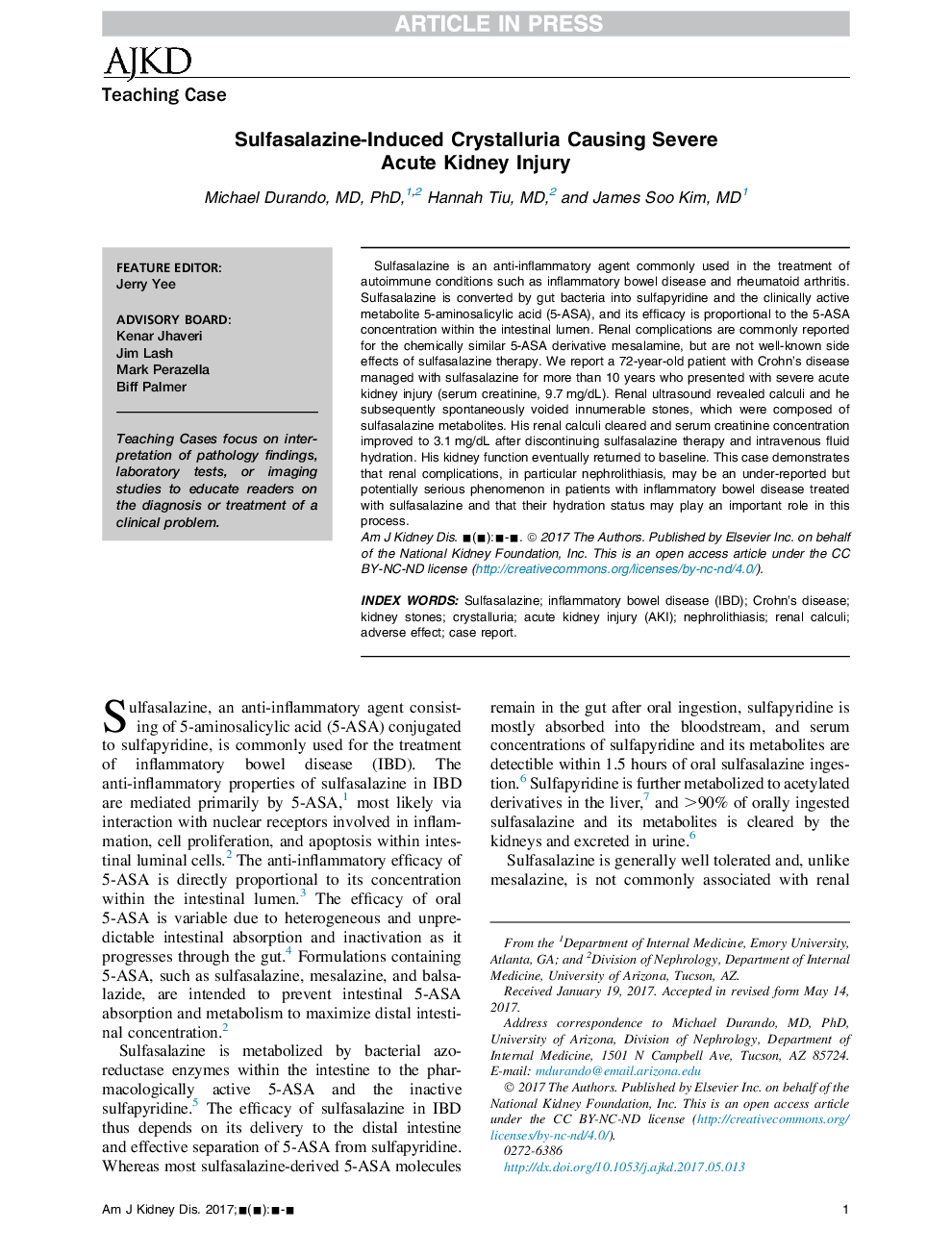| Article ID | Journal | Published Year | Pages | File Type |
|---|---|---|---|---|
| 8770047 | American Journal of Kidney Diseases | 2017 | 5 Pages |
Abstract
Sulfasalazine is an anti-inflammatory agent commonly used in the treatment of autoimmune conditions such as inflammatory bowel disease and rheumatoid arthritis. Sulfasalazine is converted by gut bacteria into sulfapyridine and the clinically active metabolite 5-aminosalicylic acid (5-ASA), and its efficacy is proportional to the 5-ASA concentration within the intestinal lumen. Renal complications are commonly reported for the chemically similar 5-ASA derivative mesalamine, but are not well-known side effects of sulfasalazine therapy. We report a 72-year-old patient with Crohn's disease managed with sulfasalazine for more than 10 years who presented with severe acute kidney injury (serum creatinine, 9.7Â mg/dL). Renal ultrasound revealed calculi and he subsequently spontaneously voided innumerable stones, which were composed of sulfasalazine metabolites. His renal calculi cleared and serum creatinine concentration improved to 3.1Â mg/dL after discontinuing sulfasalazine therapy and intravenous fluid hydration. His kidney function eventually returned to baseline. This case demonstrates that renal complications, in particular nephrolithiasis, may be an under-reported but potentially serious phenomenon in patients with inflammatory bowel disease treated with sulfasalazine and that their hydration status may play an important role in this process.
Keywords
Related Topics
Health Sciences
Medicine and Dentistry
Nephrology
Authors
Michael MD, PhD, Hannah MD, James Soo MD,
